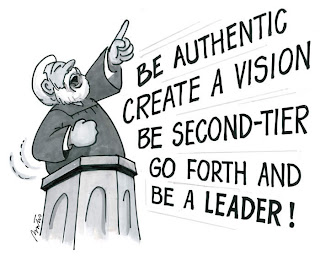I just happened to be on-line searching two Sundays ago when Google was struck by the '
this site may harm your computer' glitch for every site it listed - an annoyance that lasted an hour.
It was at that time that I realized how dependent, I and probably most of the civilized world have become on Google.
For my intelligence.
I'm not exaggerating. It was a sickening feeling.
First because it's clear this kind of dependence is high risk. What if something really did happen to Google? How stupid would we all become?
Second, because in an instant I realized I my overall capability had been seriously degraded. I couldn't even find my way around my home city anymore. Getting stupider was way too easy.
According to stats, Google gets over 70% of all internet search queries. Yahoo, it's closest competitor gets around 19%. That's domination.
Jeff Jarvis, proud blogger who single-handedly (mostly according to him and seemingly true) brought Dell to its customer service knees has an interesting book out called '
What Would Google Do?' As Jarvis says, he's attempted to reverse engineer what Google does and apply the learning to other businesses.
So, here are we are confronted with the reality that 70% of all the knowledge outside our brains is fed to us through one (large) firehose - faced with that, what would Google do?
I have no idea.
What they did do was fix the issue fast, blame someone inside (good that it wasn't some malicious/potential-to-be-very-famous hacker) and move on quickly.
What I did, was check out Yahoo for the first time in about 5 years...and couldn't find what I was looking for.
There's one small irony though that this illustrates. Jarvis touches on it in his book and it hasn't been lost on others. It's ironic how Google - thanks to its huge success enabling the small; the decentralized; the collaborative - has itself become the ginormous, centralized, and singly capable entity capable of doing what it does.
It's time for the next Google.




